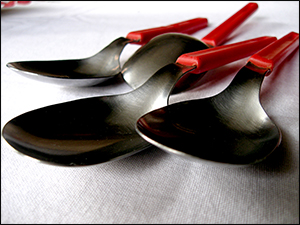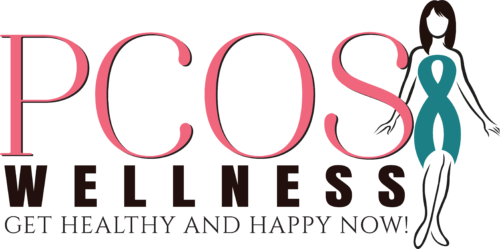
PCOS and the Spoons
PCOS Spoon Theory
Are you familiar with “spoon theory?” If not, you absolutely want to do yourself a favor and read this article. Go ahead, I’ll be here.
Spoon theory was written by a woman with lupus, Christine Miserandano, to describe what it’s like to live with a chronic disease. She imagined a person’s level of energy and ability in a given day as represented by a certain number of spoons, and then described how every task, even seemingly mundane ones, cost different amounts of spoons, causing the chronically ill person to have to make difficult decisions about how to spend their few spoons. By contrast, healthy people simply never need to worry about counting their spoons or carefully planning their expenditure.
Although spoon theory was written with lupus in mind, it can easily be applied to other chronic conditions, including polycystic ovary syndrome (PCOS), which many of my patients (as well as I) have. PCOS applies to spoon theory in terms of how we manage emotional and mental stress and anxiety. Chronic disease, of any type, is a huge life stressor that a person must contend with. This leaves that person with far fewer “spoons” to accomplish their daily tasks than those without a chronic illness.
To illustrate how this might work, let’s say a hypothetical woman with PCOS has 12 spoons. Women without PCOS or another chronic condition might have enough spoons that they don’t have to worry about even counting them most days. But for comparison’s sake, let’s say that a different hypothetical woman without PCOS also has 12 spoons.
Both women have to accomplish the same list of tasks every day, with the corresponding costs in spoons:
- Waking up and getting herself ready for the day. (2 spoons)
- Preparing breakfast and lunch. (1 spoon)
- Going to work. (2 spoons)
- Cooking and cleaning up dinner. (1 spoon)
- Exercising. (1 spoon)
- Quality time with partner. (1 spoon)
This leaves the woman without PCOS with four remaining spoons for the day that she can spend as she wishes. Perhaps she could grab a drink with a friend after work or make some progress on a household project. Or maybe she’ll have enough spoons left by the end of the night that she feels like having sex with her partner.
The woman with PCOS, however, has other hidden costs that she must spend spoons on throughout her day, in addition to the above, such as:
- Pushing through feelings of self-loathing at her body, due to the excess mid-section weight she can’t seem to lose, in order to get ready for work. (1 spoon)
- Checking herself for excess facial hair growth and treating her acne. (1 spoon)
- Spending her lunch break trying to make appointments with the fertility specialist and endocrinologist. (1 spoon)
- Resisting the strong cravings to eat food she misses, and instead eating PCOS-healthy meals. (1 spoon)
- Getting into yet another argument with her partner about her excessively low (or excessively high) libido. (1 spoon)
As you can see, this leaves the woman with PCOS with one spoon too few to accomplish her daily tasks, forcing her to make difficult choices. Even worse, all of this happens invisibly, under the surface, and it might be very difficult to explain to partners and friends. This can lead to chronic stress as well as feelings of shame or inadequacy, costing further spoons.
Does this describe your life? If so, there is some good news.
PCOS may cost you a lot of spoons, but there IS a way to gain more spoons on the average day. A qualified health psychologist with expertise in PCOS can help you deal with the physical and emotional struggles of your chronic condition. In addition, reaching out to other women with PCOS to find support and community can help tremendously.
Always remember that you are not alone, and that PCOS can be effectively managed in order to live a full and happy life.
References:
de Ridder, D., Geenen, R., Kuijer, R., & van Middendorp, H. (2008). Psychological adjustment to chronic disease. Lancet (London, England), 372(9634), 246–55. http://doi.org/10.1016/S0140-6736(08)61078-8
https://butyoudontlooksick.com/articles/written-by-christine/the-spoon-theory/
Session expired
Please log in again. The login page will open in a new tab. After logging in you can close it and return to this page.

